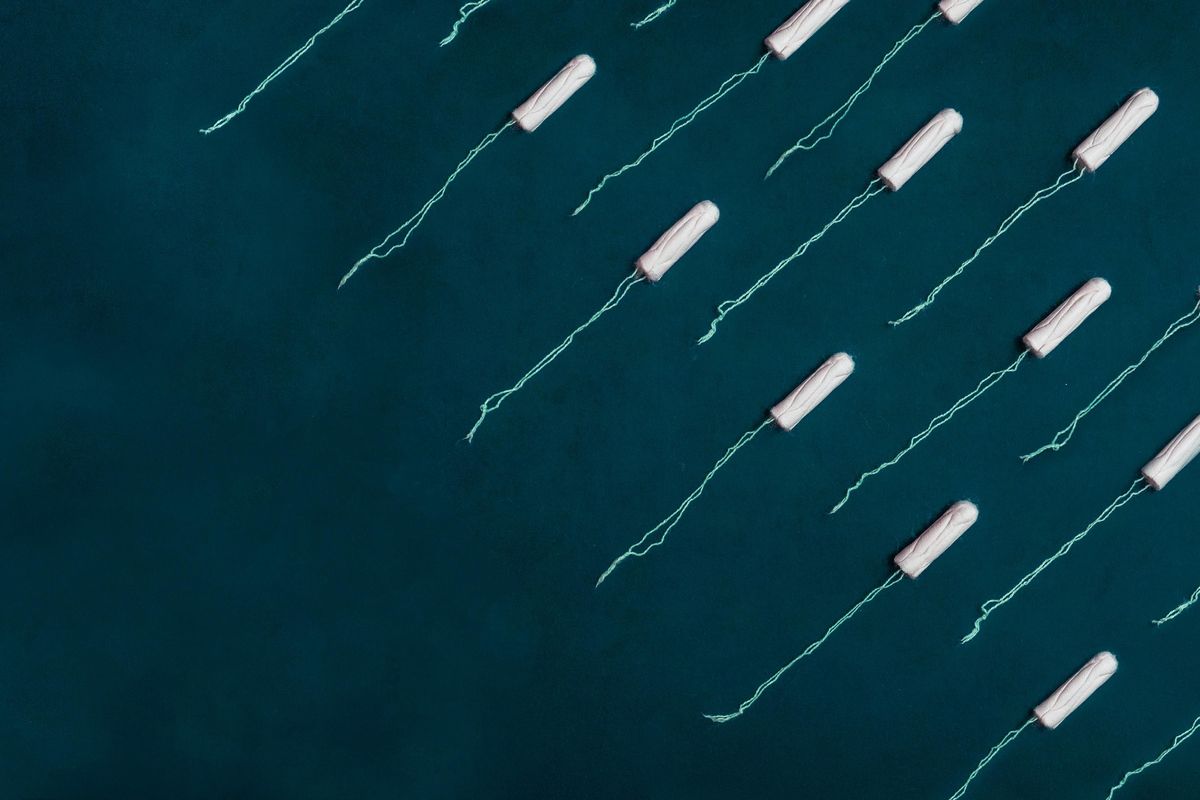It's time we address the reality of America's period poverty
Anyone who menstruates should have universal and free access to menstruation products. It's as simple as that.

Upon hearing Scotland's decision to make menstrual products, including tampons and pads, free in public facilities, I was ecstatic. How could I not be? Scotland is the first country to allow universal access to menstrual products, inching closer to ending global period poverty. But as exciting as this is for Scotland, I couldn't help but feel a pang of jealousy, as well as frustration.
I reside in the U.S., where period poverty is very much a reality. The "tampon tax," is alive and well, and many women and girls don't have access to basic hygiene products. It's interesting because when you think of the U.S., you don't automatically envision a nation in poverty. After all, America is one of the richest countries in the world. However, dig past the gleaming surface of privilege and you'll discover something vastly different.
For those unaware - or who simply don't menstruate - period poverty is a global issue affecting women and girls who don't have access to safe, hygienic sanitary products. While there is no specific tax on tampons in the U.S., several states do consider many hygienic products (including tampons and pads) to be a "luxury" item under the law. Therefore, these products are subjected to state and local sales taxes. So if menstruation is considered such a luxury, why are women and girls continuously penalized for it?
"The Queen's Gambit" is an incredible show, but we need to talk about that menstruation scene

Why does the media continue to portray menstruation scenes inaccurately?
According to Period Equity, a non-profit dedicated to fighting for menstrual equity, 30 states, (including Texas, Georgia and Arizona) still tax menstrual products as "non-essential" goods. States that have outlawed the "tampon tax" are Minnesota, Illinois, Pennsylvania, New York, Massachusetts and Maryland to name a few. A few things classified as "basic necessities" are: condoms, lip balm, sunscreen, Viagra, and Band-Aids. In Missouri, Bingo supplies is even considered an essential good and therefore tax exempt.
Seriously? How did Bingo and Viagra become more essential than menstruation products?
This is sexism in it's purest form. Women are being taxed simply for being women.
Period products can cost anywhere from $150-$300 per year. That might not some seem like a financial imposition on some, but when you factor those living on low-incomes or who are currently homeless, affording basic period products can seem daunting. There's also the fact women still make less than men in the U.S. Only 81 cents per every dollar a man makes to be exact.
So let's do a little math.
Women usually start their period around the ages of 12 and 14, and stop getting their period between the ages of 45 and 55. An average menstrual cycle occurs every 28 days (once a month) and lasts anywhere from 3-8 days. That's a total of 96 days out of the year. This means an average woman will experience a total of 456 periods over the course of 38 years. Look at it this way, a woman will spend roughly 2,280 days on her period, which adds up to 6.25 years of her life.
Menstruation isn't something women can opt out of. Therefore, we shouldn't be subjected to paying high taxes on products catering to our basic needs. Sure, there are ways women can limit their periods, but that doesn't solve the overall issue. Canada, India and Germany all repealed taxes on menstruation products.
Isn't it time we normalized period sex and banish the stigma surrounding it?

Let's be clear, the stigma surrounding period sex is completely gender-based. It is an arbitrary double standard created by men to shame women into feeling inadequate.
What's more, certain states are leading the change towards ending the "tampon tax" and putting a stop to period poverty. In January, Virginia State Senator Jennifer Boysko passed a state law that lowers Virginia's sales tax on items like pads and tampons. In 2018, Virginia Delegate, Kaye Kory created a bill requiring prisons provide free menstrual products to inmates. It was the first bill of its kind in the U.S. The following year, U.S. Rep. Grace Meng (D-NY) introduced the Menstrual Equity for All, which is a comprehensive bill addressing menstrual equity.
These are all great victories in ending global period poverty. But what I can't understand is why women continue paying for these products in the first place. These are essential items women require to live their daily lives, and should be treated as a necessity rather than a luxury. We don't tax toilet paper or groceries, so why are we continuing to tax this basic necessity?
It makes absolute no sense to me, other than the fact these items are catered to women. And we all know, anything catered to women in this country is deemed "non-essential." If men received their periods every month, I have no doubt there would be free period products accessible on every corner. We have to put an end to this incredulous injustice. Anyone who menstruates should have universal and free access to menstruation products.
It's as simple as that.


